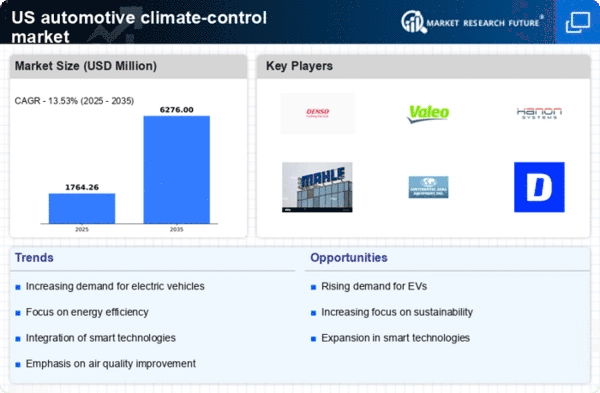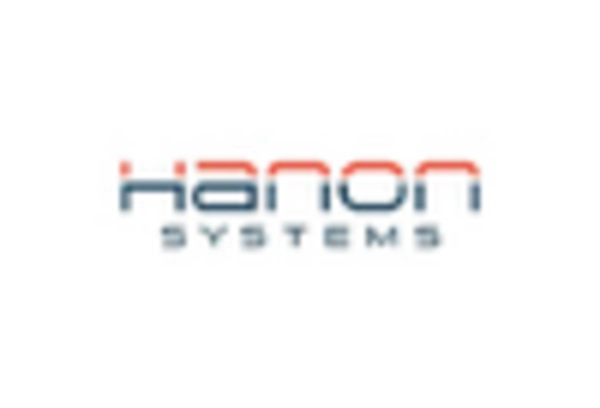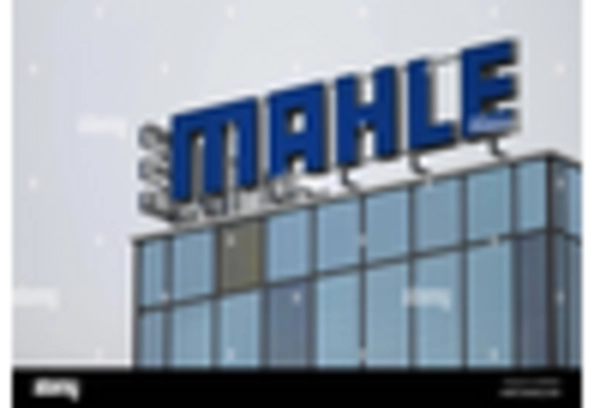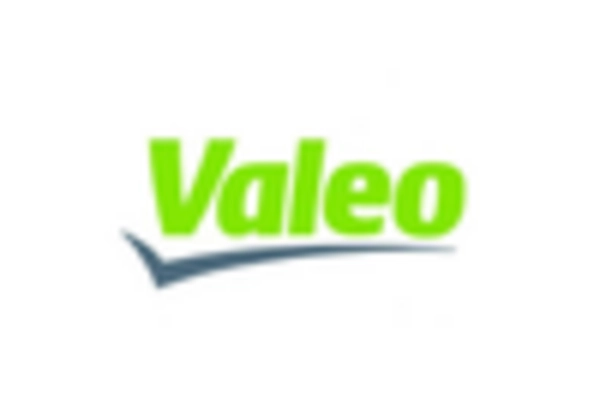Technological Advancements in HVAC Systems
The automotive climate-control market is experiencing a surge in technological advancements, particularly in heating, ventilation, and air conditioning (HVAC) systems. Innovations such as variable refrigerant flow and advanced sensors are enhancing system efficiency and user comfort. In 2025, the market for these advanced HVAC systems is projected to reach approximately $10 billion in the US, reflecting a growth rate of around 8% annually. These advancements not only improve energy efficiency but also contribute to reduced emissions, aligning with the increasing regulatory pressures for greener technologies. As consumers become more environmentally conscious, the demand for vehicles equipped with state-of-the-art climate-control systems is likely to rise, further propelling the automotive climate-control market forward.
Consumer Demand for Enhanced Comfort Features
In the automotive climate-control market, there is a notable increase in consumer demand for enhanced comfort features within vehicles. Modern consumers prioritize comfort and convenience, leading to a growing preference for vehicles equipped with advanced climate-control systems. Features such as dual-zone climate control and personalized temperature settings are becoming standard in many new models. According to recent data, nearly 60% of consumers in the US consider climate control features as a critical factor when purchasing a vehicle. This trend indicates a shift towards more luxurious and comfortable driving experiences, which is likely to drive growth in the automotive climate-control market as manufacturers respond to these evolving consumer preferences.
Shift Towards Autonomous Vehicle Technologies
The automotive climate-control market is also being influenced by the shift towards autonomous vehicle technologies. As vehicles become more automated, the demand for sophisticated climate-control systems that can adapt to varying conditions and passenger preferences is increasing. Autonomous vehicles are expected to feature advanced climate-control systems that can automatically adjust based on real-time data, enhancing passenger comfort. This trend is likely to drive innovation and investment in the automotive climate-control market, as manufacturers seek to develop systems that not only meet the needs of autonomous driving but also provide a superior user experience.
Regulatory Compliance and Environmental Standards
The automotive climate-control market is significantly influenced by regulatory compliance and environmental standards set by government agencies. Stricter emissions regulations are prompting manufacturers to adopt more efficient and eco-friendly climate-control technologies. For instance, the US Environmental Protection Agency (EPA) has implemented guidelines that require reductions in greenhouse gas emissions from vehicles. As a result, the market is witnessing a shift towards the use of low-GWP (Global Warming Potential) refrigerants and energy-efficient systems. This regulatory landscape is expected to drive innovation and investment in the automotive climate-control market, as companies strive to meet compliance while also appealing to environmentally conscious consumers.
Integration of Climate Control with Electric Vehicles
The rise of electric vehicles (EVs) is reshaping the automotive climate-control market, as these vehicles require specialized climate-control systems to optimize battery performance and passenger comfort. Unlike traditional vehicles, EVs often utilize heat pumps for heating and cooling, which are more energy-efficient. The market for climate-control systems in EVs is projected to grow at a rate of 15% annually, reflecting the increasing adoption of electric vehicles in the US. This integration not only enhances the driving experience but also contributes to the overall efficiency of EVs, making it a critical area of focus for manufacturers in the automotive climate-control market.
















